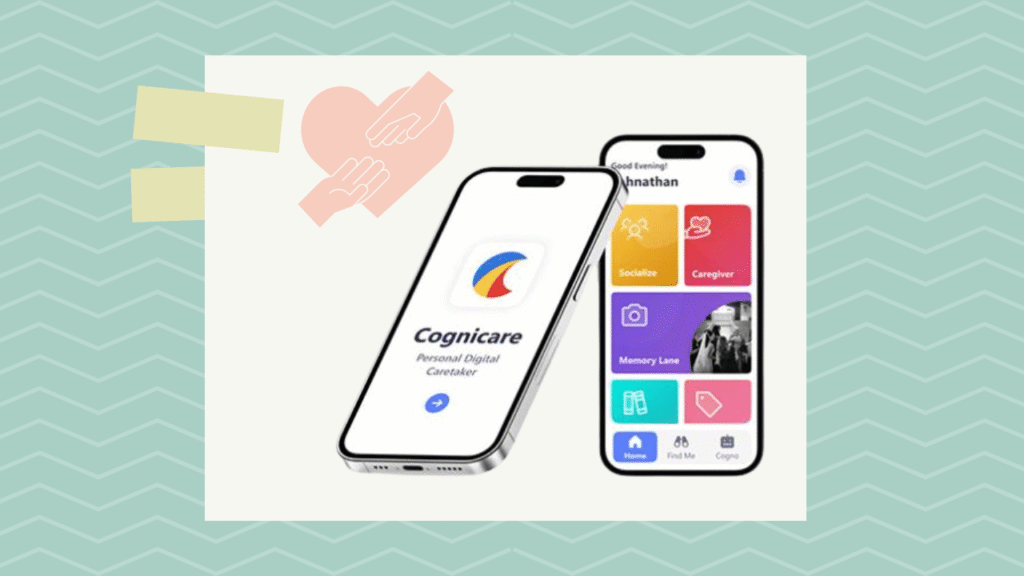From stress to self-care, digital tools for mental wellness are everywhere. In this Review of CogniCare AI, I walk you through why this platform stands out, who it’s best suited for, and what it gets right—or could do better.
Why cognitive health tools matter right now
Digital mental health support has become essential. With rising global anxiety and fewer in-person resources, people rely on apps and directories more than ever. In this Review, I assess how the platform addresses this growing need for accessible, intelligent resource curation.
What is CogniCare AI
In this Review of CogniCare AI, we examine its identity. CogniCare AI is not a therapy app but a well-organized, AI-enhanced directory of tools aimed at emotional and mental wellbeing. It’s different from wellness blogs or other platforms that share a similar name because it focuses strictly on curated AI tools for mental health.
Who it is for
This Review makes clear its audience: individuals dealing with anxiety, depression, or stress who want resource help; caregivers looking for platforms to share with loved ones; and clinicians or coaches seeking tool directories that are easy to browse.
Onboarding and access
I explore how easy it is to begin. This part of the Review looks at how users land on the platform, discover its tools, and use search or filters to narrow down categories like Mindfulness or Chat Therapy. The flow is clean, intuitive, and low-friction.
Feature set overview
A core portion of this Review examines the directory layout—categories such as Anxiety, Depression, Therapy, Mindfulness, Self Care—and how individual listings provide descriptions, links, and key attributes. It’s simple yet effective.
Content quality and vetting
Does the platform vet what’s listed? In this Review, I look at the inclusion criteria, whether claims are supported, whether disclaimers are clear, and whether listings are updated regularly. Evidence labeling is light, though disclaimers are present.
Privacy and safety posture
Privacy matters. This Review reviews their policy: site collects cookies and analytics, links out to third-party tools, and includes disclaimers. No collection from minors under 13 is mentioned—overall responsible yet cautious.
User experience and design
Design is key to usability. This Review evaluates readability, mobile friendliness, clarity, load-times, and dark-mode—or lack thereof. Overall, the site is fast and clean, even on phone screens.
Strengths
Highlighting the upsides in this Review of CogniCare AI: laser-focused on mental health, well-structured categories, low barrier to exploration, and an empathetic tone. Users immediately feel oriented rather than overwhelmed.
Limitations
But no platform is perfect. This Review of CogniCare AI notes limits like shallow clinical validation per tool, limited regional or cultural perspectives, and no built-in outcome tracking or side-by-side comparisons. It’s a directory, not a rating engine.
Comparison set
Where does it stand? In this Review of CogniCare AI, I compare it with AI-tool directories, app stores, or clinician lists. CogniCare AI shines for focused mental health categories; others may have broader selection but lack curation or context.
Real world use cases
Putting it in action: this Review of CogniCare AI gives examples—someone needing after-hours chatbot support finds relevant tools quickly; another builds a mindfulness routine; a caregiver scouts anxiety tools for a teen. The directory format supports quick discovery.
Accessibility and inclusivity
In this Review of CogniCare AI, I check for readability levels, language options, and inclusive design. The text is plain, but there’s room for translations or low-bandwidth modes. Neurodiverse-friendly features could be expanded.
Pricing and monetization
It’s free to browse, though the Review of CogniCare AI notes potential affiliate or referral links that help fund the site. Transparency about monetization exists but is minimal on how referrals support the platform.
Trust and transparency checklist
Recommendation section in this Review of CogniCare AI suggests what users should verify before trusting a tool: check clinical evidence, read privacy notes, cross-reference claims, and be wary of grandiose promises. Red flags include tools without privacy statements or peer-reviewed backing.
Roadmap and wishlist
What could improve? In this Review of CogniCare AI, suggestions include adding expert ratings, evidence labels, user reviews, regional filtering, outcome tracking, and improvement of accessibility features like text size and translations.
Verdict
Who should go for it? In this Review of CogniCare AI, I conclude it’s great for users seeking a clean, mental-health focus directory. It may fall short for those needing deep clinical validation or comprehensive comparisons. The bottom line: a consistent, approachable starting point.
Quick tips for safe adoption
Final practical advice in this Review of CogniCare AI: pair tools with professional care, protect your own data, track how you feel, and avoid over-reliance. Use tools as companions rather than prescribers.
Conclusion
In this Review of CogniCare AI, you’ve seen a full walk-through of the platform—from its purpose and audience to strengths, gaps, and what could come next. With clean design, thoughtful organization, and mental-health focus, it makes exploring AI tools easier—just watch for clinical depth and always stay informed.

